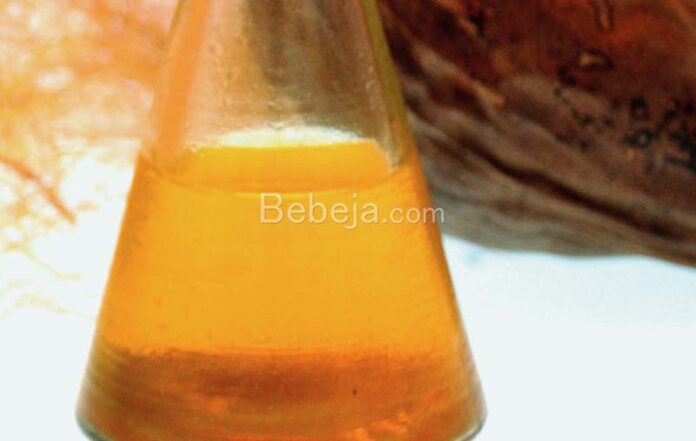Liquid smoke from coconut shells can serve as a natural insecticide against pests. It is obtained through the pyrolysis process, which condenses coconut shell smoke. Pyrolysis is the decomposition of carbon-containing materials from plants, animals, and mining materials that occurs at 400°C for 4-7 hours under limited oxygen conditions, producing solid, liquid, and gas products.
Liquid smoke has various benefits, particularly in the food industry, such as providing aroma, texture, and flavor, as well as preserving food. Additionally, it can be used as a rubber coagulant and wood preservative.
Liquid smoke is composed of at least 20 compounds, including organic acids, carbonyls, and phenols. Organic acids have properties such as fungicides, antifungals, and antibacterials, while phenol compounds have repellent properties that can drive away insect pests. The combination of these compounds makes liquid smoke an effective natural insecticide.
The acetic acid compound found in liquid smoke is effective in killing stem borer larvae, which are a concern for both fruit growers and hobbyists. This compound can damage the skin of the larvae upon contact.
However, the use of liquid smoke as a natural insecticide is still limited due to its availability. Planters tend to prefer chemical insecticides due to their faster pest-killing capabilities. However, the long-term use of chemical insecticides can cause environmental damage. This is in contrast to natural insecticides made from liquid smoke, which are environmentally friendly.
